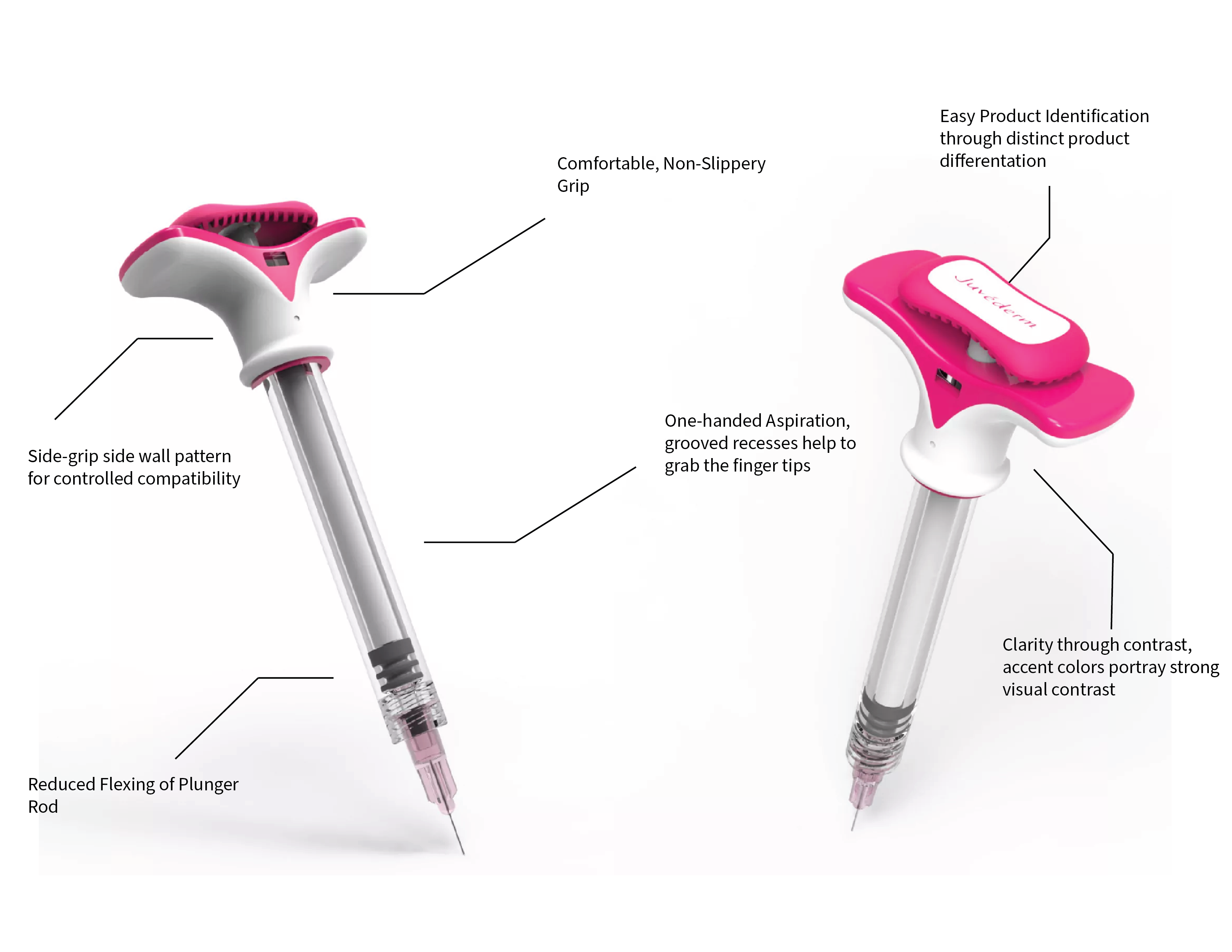Allergan
Ergonomic branded
syringe offering for
Juvederm line of fillers.
Type:
Industrial Design
UX/UI Design
Brand
Industry:
Medical
The Challenge
Create a precise ergonomic syringe for Allergan’s Juvéderm line of fillers in the global market, while maintaining a consistent global brand language.
The Impact
Together with Juvederm’s internal marketing and engineering teams we collaborated to conduct field research and user testing with contextual stimuli, and design an industry-leading medical device
The Outcome
A universal, research-backed, and market-leading design that enabled Doctors to provide the best quality treatment to their patients.
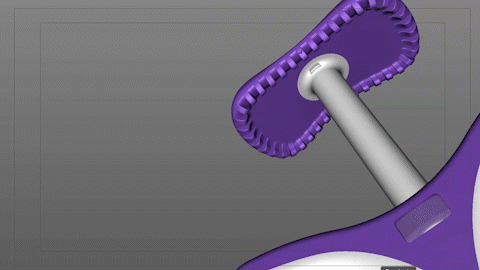
Psycho Aesthetics™: “It’s not how you feel about the design or experience, it’s how the design makes you feel”
– Ravi Sawhney
Our Human-Centered Methodology
RKS Utilizes our Human-Centered Methodology, Psycho Aesthetics, to identify the key opportunities in the market and drive innovation across sectors and categories. Ravi’s book, Predictable Magic, which discusses how our P/A Methodology can be leveraged as a business tool, is published through Wharton School of Business. RKS also has a Harvard Excercise and Harvard Case Study, which can discuss the methodology and provide people with an understanding of how to apply Psycho-Aesthetics to their product development planning.
In addition to these publications, RKS teaches Psycho-Aesthetics to USC’s MBA program and runs workshops to teach our methodology at UCLA, CSUN, SCAD, CSULB, along with many companies looking to integrate design thinking into their organization. Psycho Aesthetics is also part of the core curriculum at SCAD, the largest design university in the US.
P/A Map™ by RKS Design
P/A maps are a scalable design-strategy framework.They are a center point to Psycho-Aesthetics,providing a consistent lens to see the world through. Additionally, we find that usingP/A maps trigger recall at a higher level than occurotherwise. Viewing visuals trigger recall of processand insights that allow communication with higherlevels of depth, clarity, and conviction. The mapsbecome a new shared language between stakeholdersand ourselves.It is used to map personas, brands, and offeringsagainst the consumer’s Hierarchy of Needs,Desires, and Aspirations on one hand and levels ofinteractivity on the other. Once these entities aremapped, opportunity zones (White Space / BlueOcean) can be identified and design directions can bedefined and communicated.
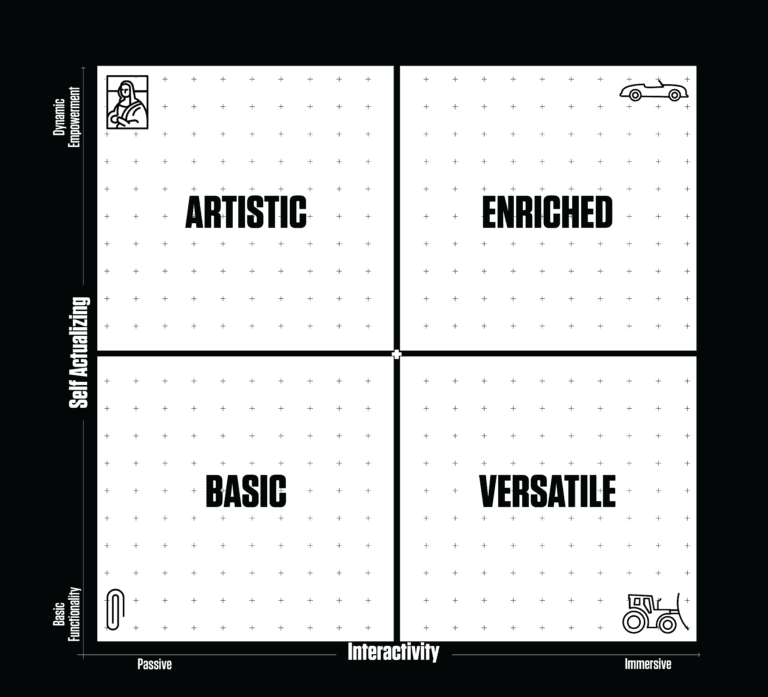

Research
Conducted global research from East to West, across three countries, the US, Germany, and Korea in order to create the foundation for
a universal product that fits a diverse global need.
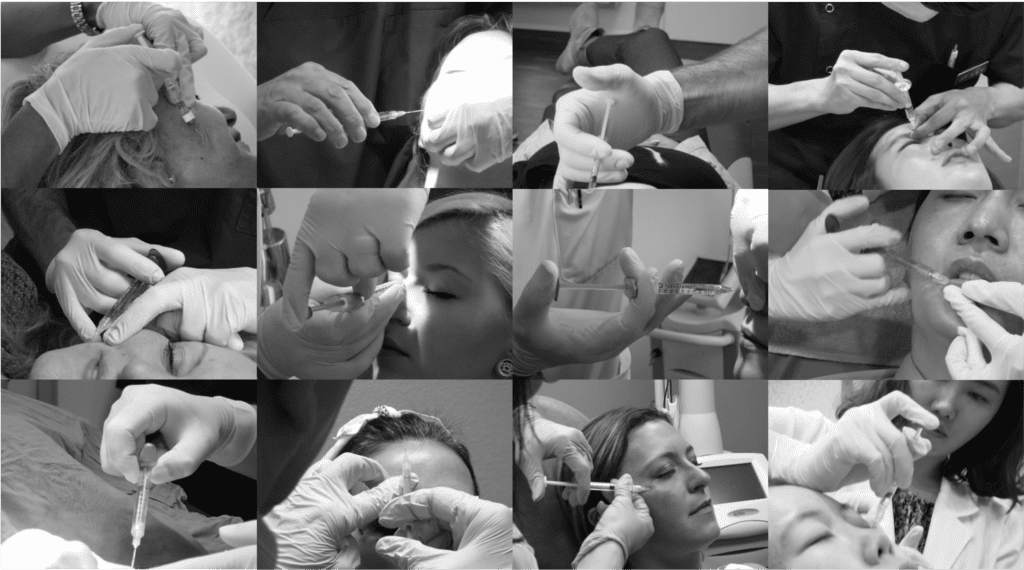
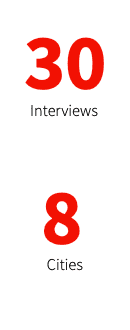
Hypothetical Ergonomic Concepting and Global Research
To understand diverse global use-cases, we created a multiple hypothetical concepts. From consumer responses, we could test features in order to build a construct that would deliver the right benefits to the diverse target user. Effortlessness, accessibility, size, and comfort were identified as key attributes.
Our global testing and interviewing was conducted in a diverse set of cultural and professional settings. We explored the different ways medical professionals hold and apply the syringe while injecting filler into the patient, as well as the patients’ experience throughout the process.
Research Finding Synthesis and Key Results
We observed key differences in the way the syringe was handled across countries and regions. Regional differences included safety, hand-size and facial anatomy. Expertise differences included technique variety and experience level. Practice difference include needle versus cannula choice, and patient positioning. As a result the grip, angle, and push-pull action of the plunger were highly variable from use to use.
While the syringe was a simple product each part was essential and each attribute of plunger, flange, and barrel was affecting the injection experience in different ways across the same use cases due to user differences.
Opportunity
Global research informed use case models around different regional uses, professional expertise, and techniques. These differences required us to focus on a universal but focused design that met diverse needs and the clients branding and business goals.

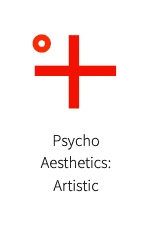
Persona Development & User Insights and Journey
We focused on six personas from three countries, that covered their regions, experience level, preferences, concerns, and anatomical variances. We benchmarked not just what they wanted, but what they could want if shown a new product.
Our testing produced regional, experiential, and ethnical differences in ways of holding and using a syringe. This synthesis informed the hierarchy of the strategic and ergonomic feature set.
Psycho Aesthetics Mapping & Key Results
P/A Methodology and maps enabled us to asses our personas existing and desired position relative to existing solutions. While both doctors and patients wanted to feel they are receiving treatment from a high tech artist, neither wanted to participate in a medical procedure or surgery. Therefore we focused on the enriched quadrant, that would provide medical functionality with ergonomic and emotional attributes that evoked soothing and science.
Able to create a human-centered strategy on how to achieve the best universal design for the best ergonomics and to provide a “sophisticatedly simple” syringe with meaningful interactions through each detail.

Design Overview
Design focused on creating a syringe that worked with differences in wrist rotation and angles of medical providers across different countries and environments.
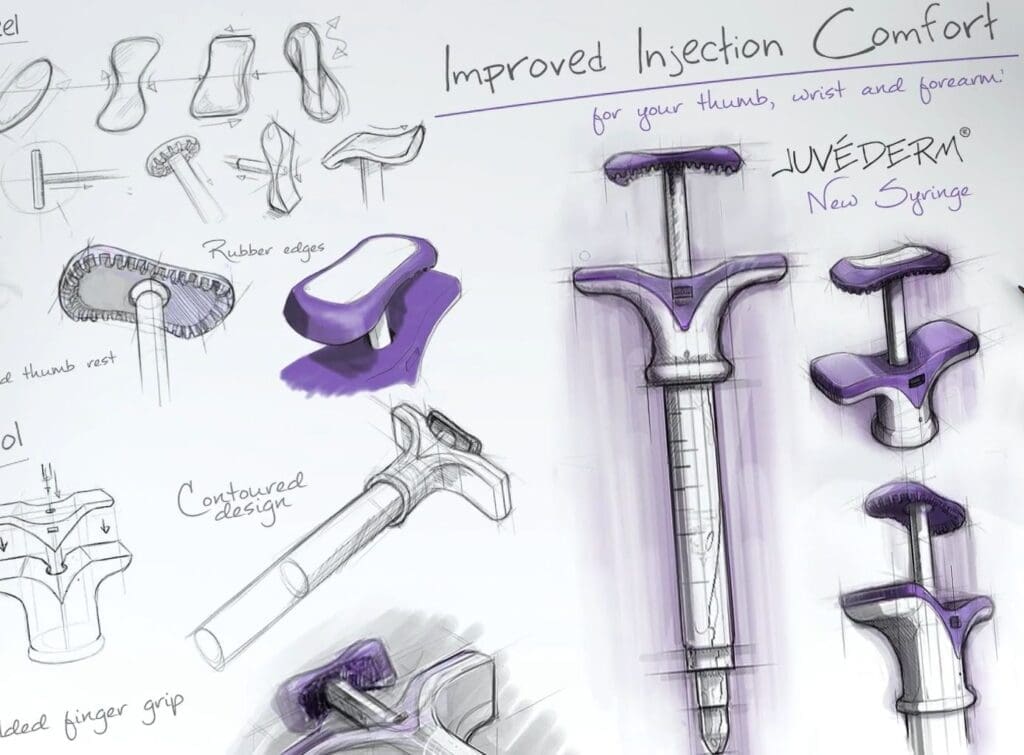
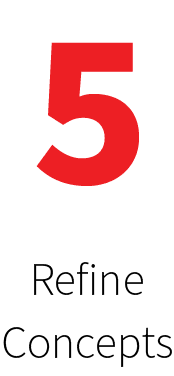
Collaborative Emergence & Industrial Design (CMF and Packaging)
Juvéderm team integrated our research to focus and refine the design around key branding needs and global use cases necessary for product-market fit. Our collaborative relationship allowed us to make tactical decisions on the design and focus our effort on the highest value choices.
Industrial design produced a series of concepts directly responsive to the research. We focused on the performance and materials of the plunger system, which was pulled and pushed by the thumb. The experience needed to be effortless and consistent across varying use cases.
Mockup Evaluation & Key Results
3D printing, direct forming of materials and use of CAD helped us iterate and create physical models to test. We evaluated a combination of hand shaping features of syringe which informed further developed and finalization of the best solution. The evaluation ensured that the syringe gave proper control to medical providers in different use cases.
Collaborative design development with phyisical and CAD models helped focus our efforts on targeted key decisions around performance and plunger use.
Design
Finalization
Final design focused on detailing around the plunger and tuning the barrel grip. Study models enabled the y-shape plunger was specifically chosen to accommodate the regional and experiential variance in use.
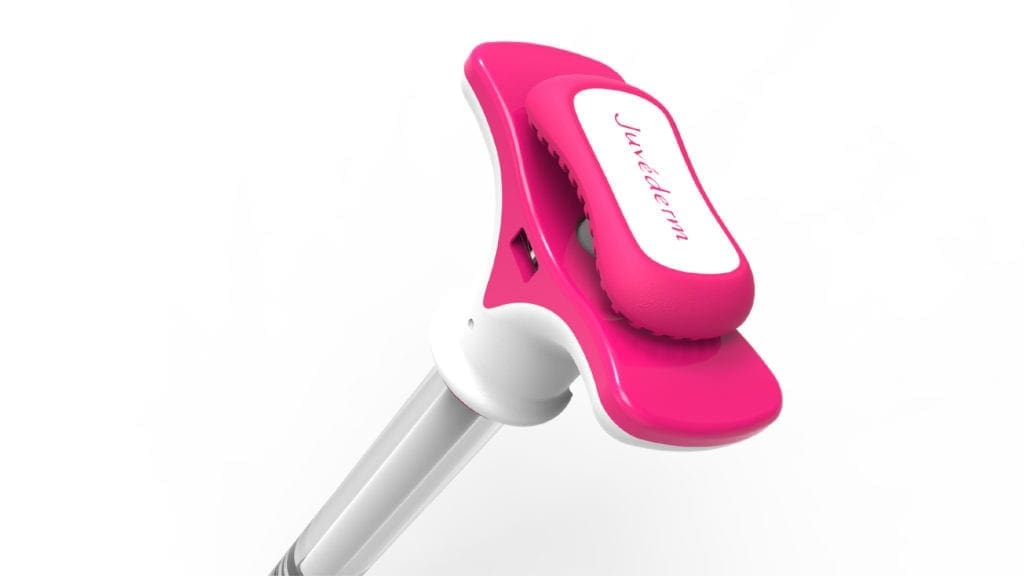
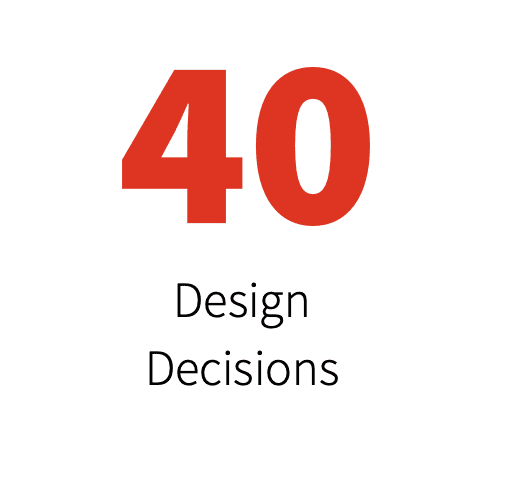
Prototype Evaluation & Manufacturing/Vendor Support
Prototypes were sent to clients which were tested and used in key use case settings. The design input from the client allowed us to tune the aesthetics and adjust and shape the final design within a highly collaborative enviro
The client engineering team engaged throughout the design process through the final designs. The engineering feedback on the prototypes and early design iterations allowed us to create an engineering-ready final design. Vendor support was provided for smaller components and manufacturing.
Key Results
Our human-centered strategy to create the best universal design for global ergonomic use and patient acceptance while fulfilling the client’s global branding needs.


